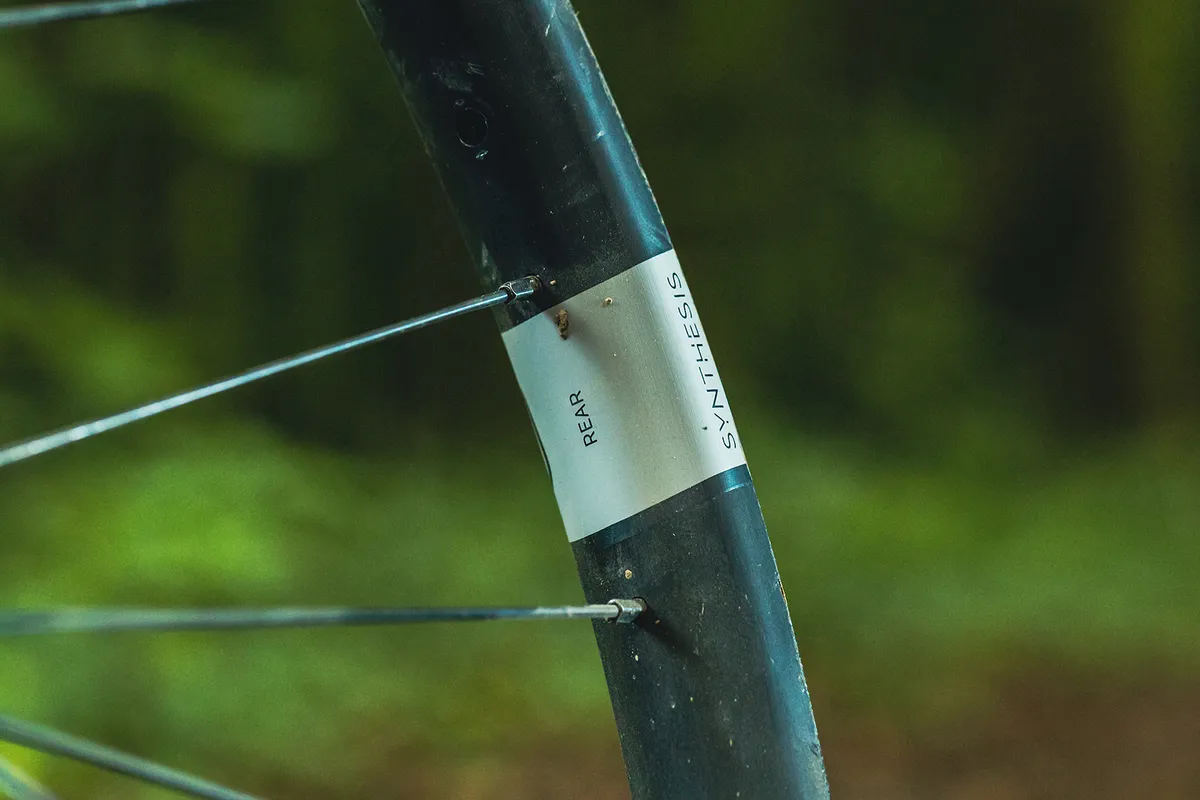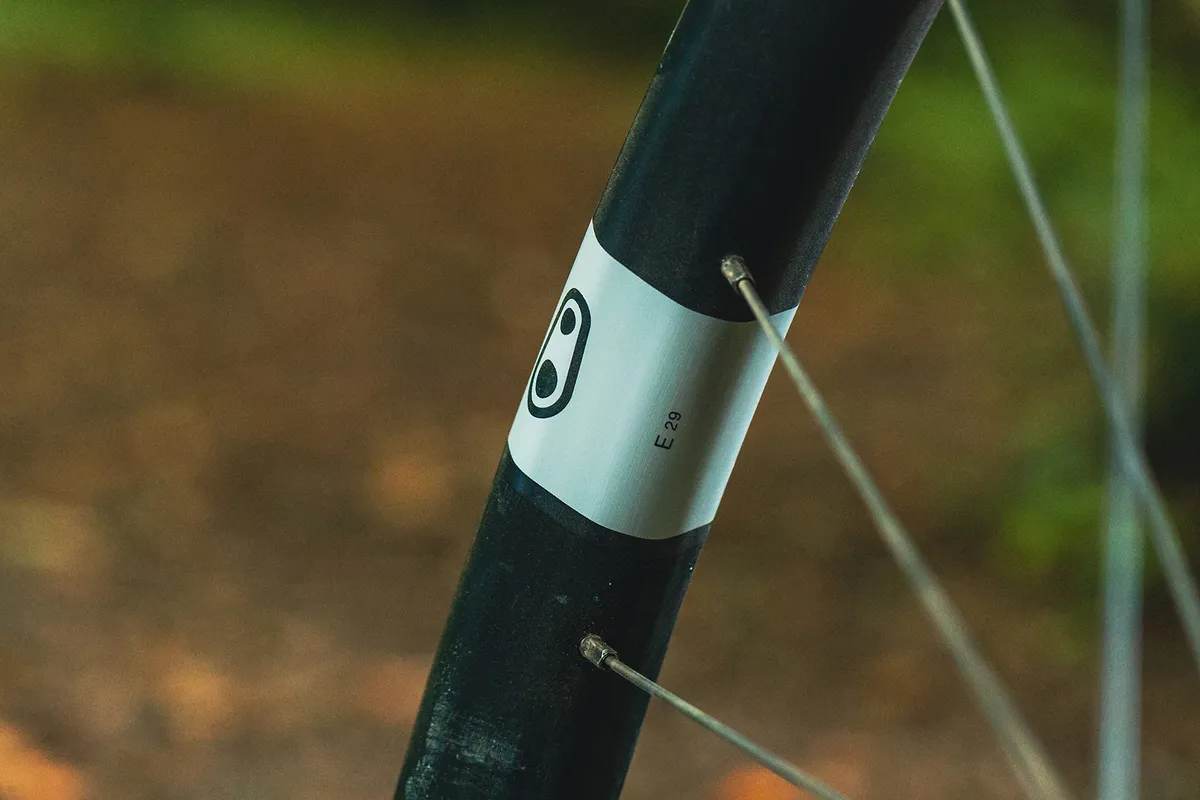According to Crankbrothers, a softer, more pliable front wheel is beneficial when it comes to comfort and line choice, while a rear wheel should be stiffer for tracking and acceleration purposes.
As such, its Synthesis range of wheels has a wider rim built on to fewer spokes up front, and a stiffer wheel at the back with a slightly narrower rim and more spokes.
But does the theory stack up?
Crankbrothers Synthesis Enduro Alloy specifications and details
While the Synthesis range initially comprised carbon hoops, alloy rimmed wheels are now included in the range, which also covers everything from DH to XC wheels, in 29in and 27.5in, as well as those for electric bike use.
At just shy of £500 for the pair, these alloy wheels with Crankbrothers’ own hubs are competitively priced, but it also offers wheels with Industry Nine hubs if you want something a bit more special.
The front rim is wider than the rear by a couple of millimetres, designed to give a little more volume and support to wider tyres, plus there are four fewer Sapim butted spokes up front to give that bit of flex.
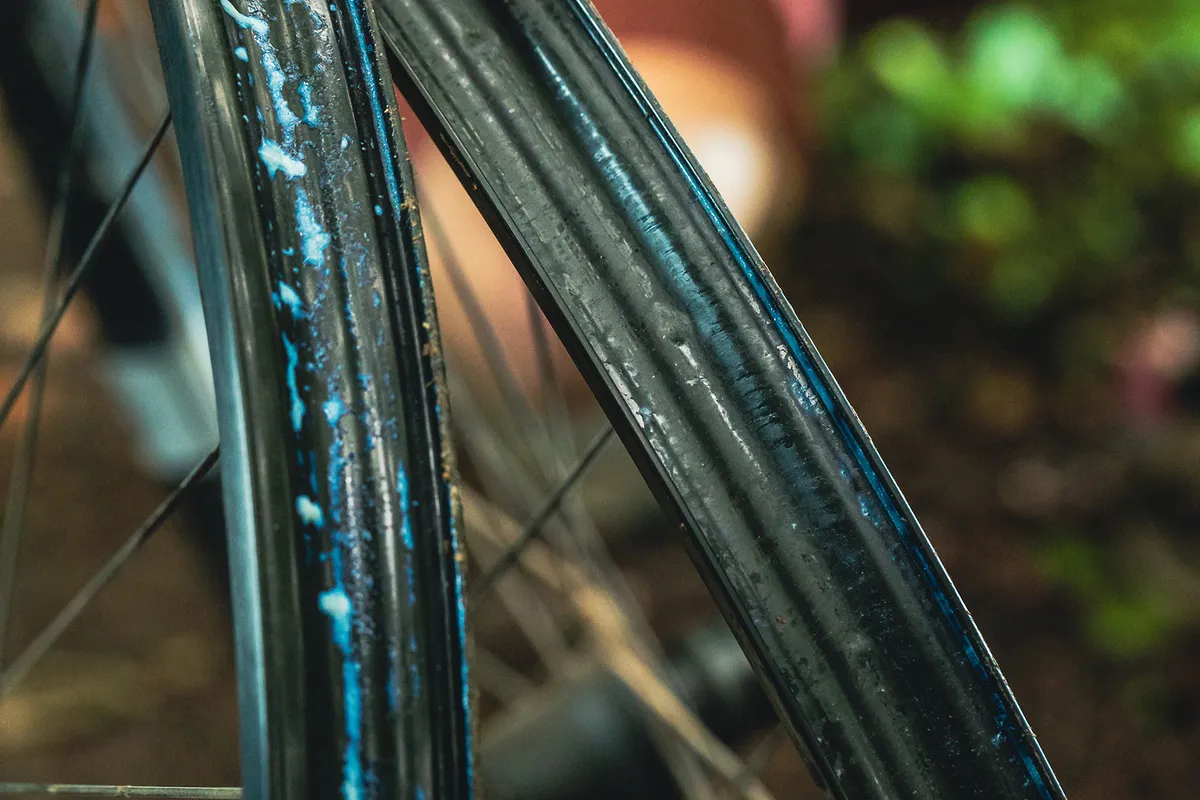
The rims come pre-taped, and comparatively it’s tidy taping. I found it easy to get tyres on to the rim, with its dimensions being middle of the road in this test.
The rim well is fairly broad, with a nice transition to the internal rim shoulders. As such, tyres popped into the bead with ease at relatively low pressures.
That said, I did find that I experienced more gradual pressure loss (overnight) when the wheels were fresh on, suggesting a small rim-tape issue.
With additional sealant, a very snug valve and a few more rides under their belt, this settled down.
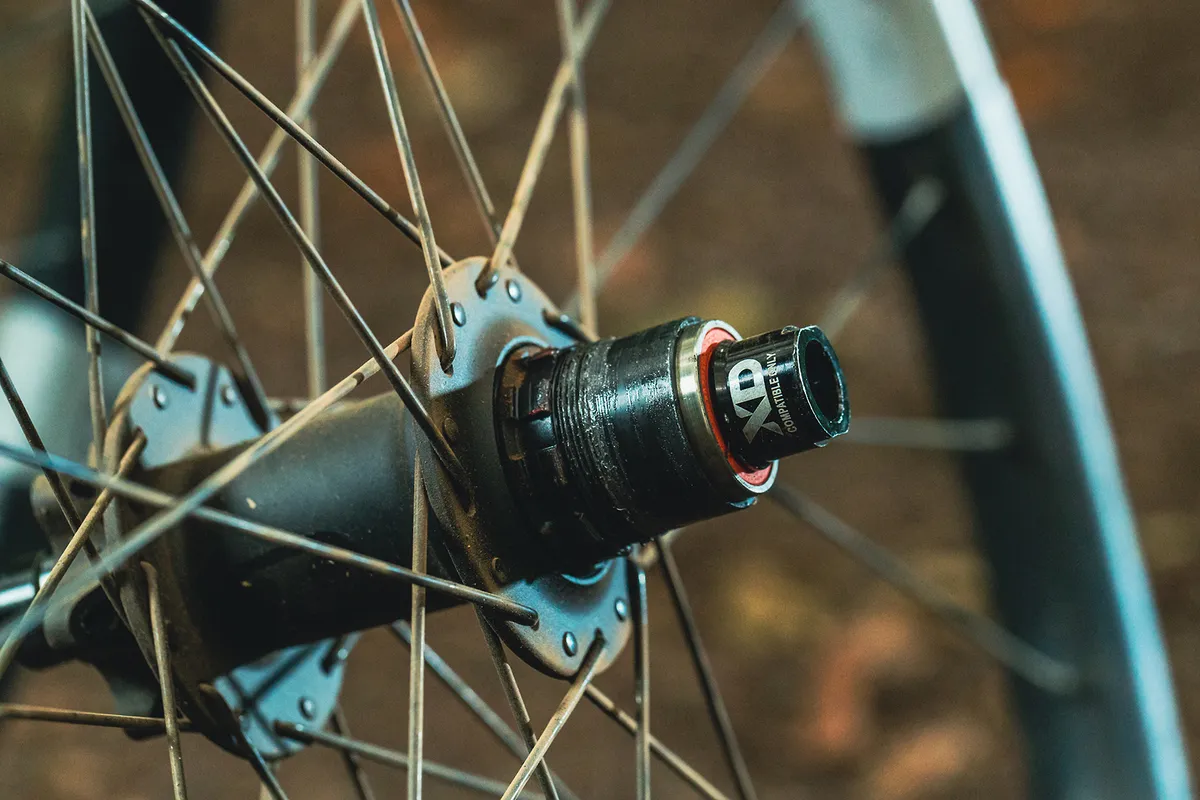
The hubs have Shimano HG, Shimano Micro Spline and SRAM XD driver freehub options, and are set to take six-bolt rotors.
Crankbrothers Synthesis Enduro Alloy performance
When I rode the first Synthesis carbon wheels at their launch event, I was impressed by their descending capabilities.
I tested them back-to-back with non-Synthesis wheels and found that hand pain, in particular, was reduced on long, rough descents.
With these alloy versions, I'm happy to say that those initial impressions hold true – though other wheel brands seem to have caught up in this regard.
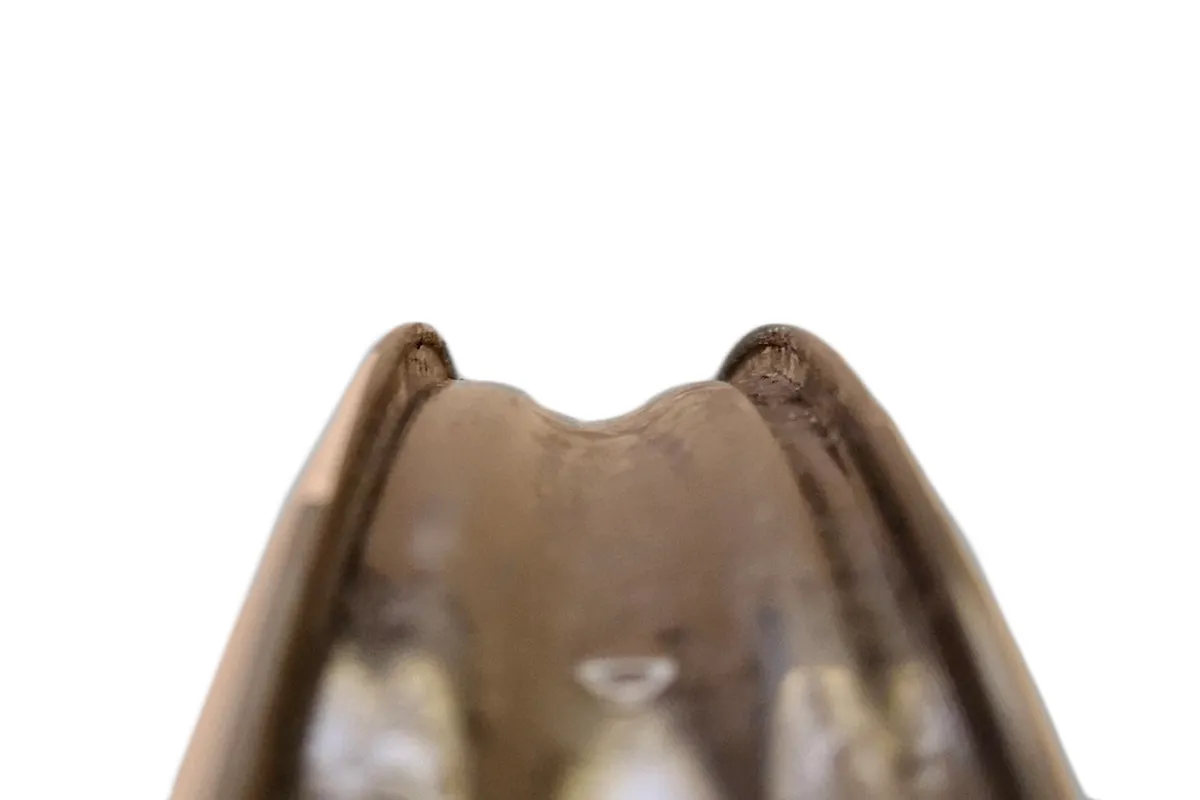
I found the wheels comfortable to ride on fast, rough and rocky tracks, with no hint of excess hand pain or arm pump. I also found that they tracked off-camber lines and rough corners very well.
There are likely a couple of factors at play – both the larger tyre volume from the wider rim and the lower spoke count up front. These will help boost grip, add insulation and prevent a harsh feel. At the same time, the front wheel never felt vague.
At the back, it’s hard to say whether the rear wheel is any stiffer than others – certainly, it doesn’t give a harsh or pingy ride.
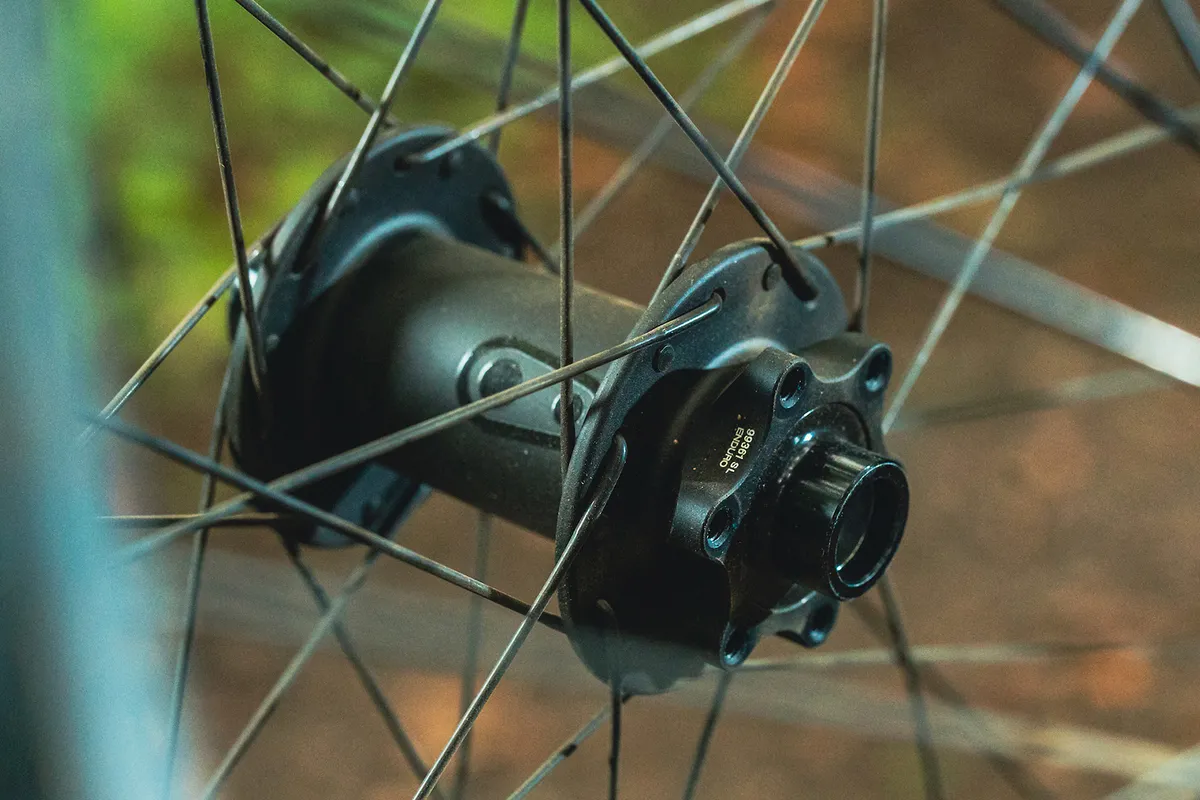
Acceleration is fine and there’s no noticeable lag when putting pressure through the pedals.
That said, the 17-degree engagement angle isn’t the quickest, so when you really jab at the pedals out of a corner, at times there’s a small wait then a clunk as the pawls engage.
Crankbrothers Synthesis Enduro Alloy bottom line
Crankbrothers’ theory that having a softer-feeling front wheel aids grip and comfort isn’t unique – it’s something we can see in a number of other wheels we tested (Hunt and Zipp most notably) – but in practice, we can’t find any downsides to their application of the theory.
On the trail, the wheels ride well and, while differences are marginal at best, I think the theory has legs.
Pricing is good and the weight is average. I’d like a snappier freehub, though.
How we tested
Wheels are a pretty pricey upgrade, so we put 12 trail/enduro sets to the test to find out if there’s an inherent benefit to pricey carbon fibre hoops or whether alloy is better for hard-hitting rims.
The wheelsets were taken on back-to-back runs down selected tracks in the Welsh woods and at BikePark Wales. They were pummelled over and into rocks and drops, turns and berms, and off-camber roots.
To keep things fair, all our testing was done on the same bikes, both hardtail and full-sus, with the same tyres (thanks Specialized!) at the same pressures.
We tested 29in wheels, but most are offered in 650b versions too. While we predominantly ran 2.6in rubber, we also slung some 2.3in tyres on, and we varied the pressures between test sessions to see what difference we could feel.
Bikes shouldn’t be a pain to live with, so we took into account the ease with which tyres could be fitted and inflated. Likewise, we considered how easy it was to access bearings and swap freehubs, too.
Also on test
Product
| Brand | Crankbrothers |
| Price | €600.00, £500.00, $600.00 |
| Weight | 2121g |
Features
| Rim material | aluminium |
| Wheel size | 29in_700c |
| Brake type simple | disc |
| Hubs | Crankbrothers |
| Spokes | Sapim D-Light (f) / Sapim Race (r) |
| Rim internal width | 31.3mm (f) / 29.1mm (r) |
| Features | Weight (f): 945g Weight (r): 1,176g Sizes available: 29", 27.5" Engagement angle: 17 degrees |
| Spoke count | 32 |
| Spoke count | 28 |
